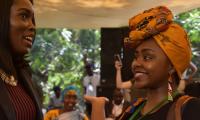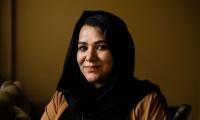Gender equality - a work in progress
Securing women a place towards the top of ballots and mentoring aspiring female politicians. A gender workshop in Bhutan explores how to increase gender equality in politics. Inspiration and specific tools from Denmark focus on the responsibilities of political parties. For both countries, the bottom line is still that women have to work harder than men to claim their space.
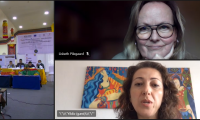
Gender equality in politics is still a work in progress. Even though the first women politicians were elected to the Danish parliament in 1918, only 39% of the seats are held by women today. In Bhutan, the number is currently 15.3% in the National Assembly. Both parliaments obviously have a big room for improvement on equal representation.
One of the barriers women must overcome is winning the nomination of their party. In Denmark, the number of nominated women has been as low as 25%, and the problem is especially poignant when it comes to local government. Former member of parliament for the Social Democratic Party and current member of the board of the Women’s Council Yildiz Akdogan argues that the way forward is through the political parties, and points to their responsibility in promoting women as their nominated candidates:
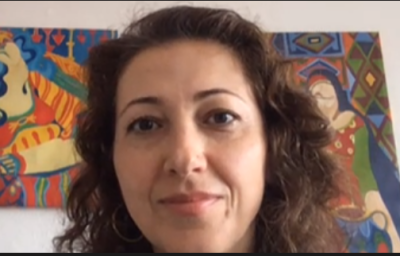
- When looking at a ballot, if the first name is that of a man the second should be that of a woman and so forth, Yildiz states and continues:
-This is one of the strategies used by political parties in Denmark to improve equal representation. We will try this strategy for the first time at the local elections in my party branch in Copenhagen.
Yildiz Akdogan argues that another big barrier women still face when campaigning, is gaining the attention of the media.
- In Denmark we still have a serious bias towards men when it comes to representation in the media. Male journalists seem to prefer interviewing male candidates. It has even been statistically proven that women get interrupted more often than men when debating. This contributes to the gender stereotyping that is also a big issue, says Yildiz and stresses that women candidates have to take responsibility for their own campaigns. When asked how women candidates can secure a win, Yildiz is clear:
- Women still have to work harder than men to claim their space.
Lisbeth Pilegaard, director of DIPD, points to the particular problems that women who are politically active can experience, because the tone is becoming increasingly harsh. Lisbeth says:
- We are seeing a tendency for polarization within politics. The lines are drawn up by the tone in the media and women face many harsh messages and verbal abuse on social media. Not just by people who disagree on political issues, but also by people who are against women wanting to have a voice and a say in politics. At the same time, the #MeToo campaign shows the hard times women have had in making their ways also in the political parties in Denmark.
On this note, Yildiz points to one of the main reasons for women being hesitant to join politics:
- It comes at a great personal price.
In Bhutan Bhutan Network for Empowering Women, INTER PARES – Parliaments in Partnership and DIPD organised a workshop for the parliamentarians. The topic of the workshop was gender scrutinization of legislation, policy, and budget. As part of the workshop former MP in Denmark and member of the board of the Women’s Council Yildiz Akdogan and Executive director of DIPD Lisbeth Pilegaard were invited to give an update on the status of gender equality in politics in Denmark.
When in power
Other challenges that face women is the responsibilities given to them once they reach the parliament. Yildiz Akdogan explains:
- Women are given softer responsibilities when appointed as ministers. They will maybe be given the responsibility of health or education whereas men are given the ministries of finance or foreign affairs.
Women still have to work harder than men to claim their space
Two women have become ministers in Bhutan. The first female minister Dorji Choden had responsibility for the Ministry of Works and Human Settlement. Currently Lyonpo Dechen Wangmo is the minister of Health.
- It is a step in the right direction to see women ministers, Yildiz Akdogan argues
- But it is not enough, we also have to aim for equal responsibility.
One of the current discussions in Denmark points out that the gender equality agenda is not prioritized enough. This is seen in the lack of prioritisation of the topic in the different ministries.
-Equality is currently a topic under the umbrella of the Ministry of Employment, but why not make equality a ministry of its own? Lisbeth Pilegaard asks continuing:
- It is disappointing that even in a country like Denmark, gender equality is not an issue that is prioritized politically or allocated enough funds.
Securing the next generation
A tool which Yildiz finds useful, especially for members of parliament, is using this position to promote and encourage women.
- In many countries, parliamentarians employ interns, Yildiz says.
- I always made a point of my interns being aspiring female politicians. A senior politician mentoring an aspiring politician can be a very useful tool. A mentoring program is way of promoting role models. This is very important: if you cannot see it, you cannot be it.
Several DIPD partnerships explain and promote mentoring as a tool to improve gender equality in politics.
Read article about the mentorship programme in Malawi.
It is not only women that should be role models. Men are an important factor in gaining equality. Lisbeth Pilegaard explains:
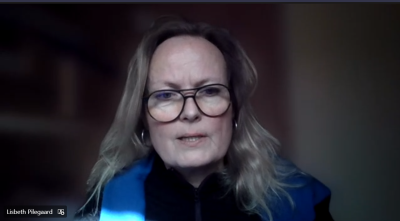
- We need you men to open the door, because it is not a matter of women lacking capacity. It is women lacking a seat at the table. It is your responsibility as privileged men to make room for women. We all need to work on sharing privilege in order to diminish discrimination.
Men must become proponents for the gender equality agenda, Yildiz agrees and stresses:
- We need the support of the men to do this kind of work. Men can be essential powers in creating the necessary change.
It is not easy to change a culture. Lisbeth explains how Danish women politicians have fought for equality for generations and still have a way to go:
- It is difficult to make the structural change and politicians can’t always solve these issues; they are an important player, but gender equality is a development that takes a long time.
Yildiz suggests that a way of dealing with the cultural change is by making practical changes instead of symbolic ones.
- Perhaps even implement a quota system, maybe just for five to ten years in order to give a push in the right direction of cultural change. This could be another tool to help make it possible for women to claim their space.
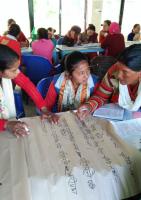
Ensuring a culture of democracy and more women in politics in Bhutan
DIPD partners with the Green Left and local partners in Bhutan on strengthening democracy and Women’s Participation and Representation in Governance, Leadership and Politics in Bhutan.
